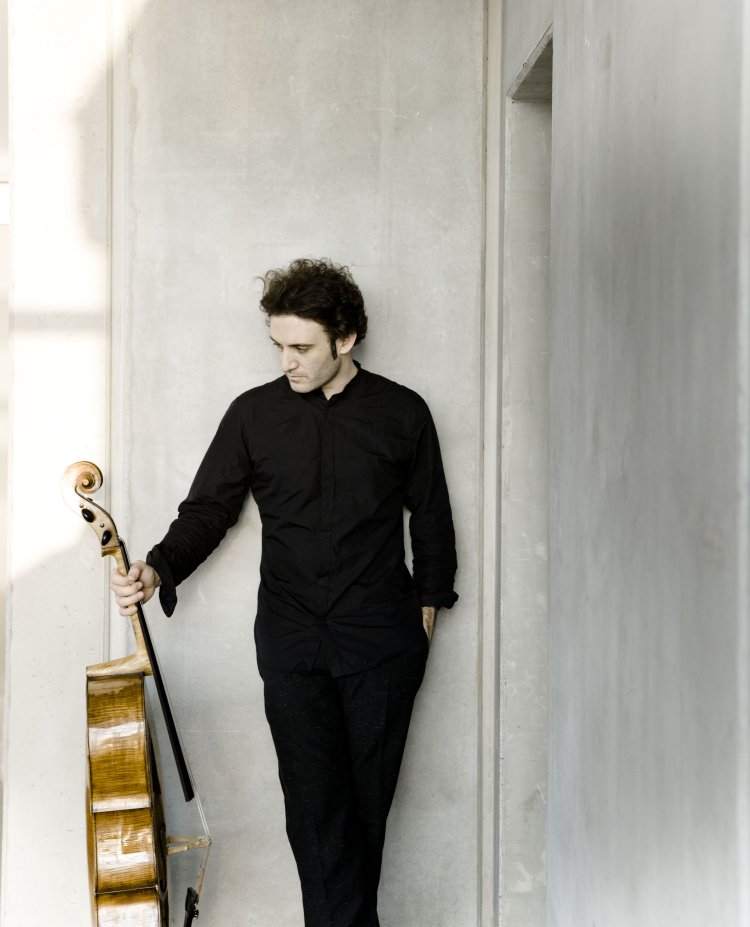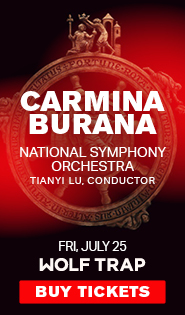A heroic solo debut and thrilling Nielsen from Gardner, NSO

Guest conductor Edward Gardner is a welcome visitor to the National Symphony Orchestra, especially when he assists in the ensemble debut of a promising new soloist. Last season it was the surprise of violinist Emmanuel Tjeknavorian, all of 24 years old. Thursday night he appeared with the more seasoned cellist Nicolas Altstaedt for the first time on the stage of the Kennedy Center Concert Hall.
Altstaedt, now 38, gave a rip-roaring account of Dvořák’s Cello Concerto in the middle of this diverting concert. Beginning with the long symphonic introduction to the first movement, the NSO’s playing was both tender and dramatic, especially in the elegiac horn solo of the second theme. Altstaedt’s heroic tone had the necessary bite and fullness to stand on its own against those forces.
Gardner amassed sound in careful proportion around his soloist, so that Alstaedt’s lines rang out clearly without the cellist ever seeming to strain. Although Altstaedt pulled at the reins with some unpredictable energy, Gardner’s careful beat kept meticulous order across the ensemble. The piece makes considerable demands in the solo part, and Altstaedt rose to all of them, becoming a little tentative only in fast-moving octaves or near the high end of the range.
For all its virtuosity, this concerto is eminently collaborative, especially since Dvořák chose not to include any extended cadenzas for the soloist. Altstaedt brought the sensitivity of a chamber musician to the second movement, intertwining melodic gestures with the paired clarinets and flutes, the latter in a passage that deceptively begins like a cadenza. The sense of nostalgia-laden remembrance here could have benefited from more generous rubato.
The NSO and Altstaedt struck instant agreement on a loping pace, relaxed but jaunty, in the Finale. Altstaedt’s immaculate fingerwork brought out many delicate complexities with striking clarity, spotlit with a savvy sense of balance by Gardner and the NSO. Long and hearty ovations sadly could not induce the cellist to offer an encore.

Gardiner, formerly music director of English National Opera, now serves as principal conductor of the Bergen Philharmonic. (He will be there through next year, when he takes over as principal conductor of the London Philharmonic at the start of the 2021-2022 season.) In the rest of the program Gardner led a mini-tour of Nordic music, opening with a subtle reading of Grieg’s Lyric Suite. Piano miniatures re-conceived as symphonic bagatelles, they feature orchestration ranging from transparent to Wagnerian.
Intense strings, lathered with nostalgic rubato, sang in “Shepherd Boy,” glints of harp poking through in softer moments. Flute and clarinet danced under showers of descending strings, until the brass lumbered mightily into the “Norwegian Rustic March.” A lush, muted violin solo by concertmaster Nurit Bar-Josef crowned the amorous “Nocturne,” and the folk-ballet humor of the “March of the Dwarfs” lurched with precision.
The program ended with the Danish firecracker of Carl Nielsen’s Fourth Symphony. He called it “The Inextinguishable,” identifying its long arc of sound with the life forces that somehow survive the worst destructive power. After an explosive opening, a waterdrop-like theme tensely ran through the sections of the orchestra, accompanied soon by the angry buzz of the violas. As the first movement grew in intensity, the brass section distinguished itself with playing of vivid character and power.
The equally fine woodwind section took center stage in the second movement, with arching oboe and flute solos accompanied by pizzicato strings. Principal cellist David Hardy contributed oaken solos on the deep strings of his instrument, eventually leading into the more austere third movement. A dramatic, recitative-like theme first in the violins drew forth a countermelody in violas and cellos, amassing sound through fugal procedures.
Furious runs in the violin section brought to life assistant principal timpanist Scott Christian, placed on the other side of the back of the stage from principal timpanist Jauvon Gilliam. The battle of the two sets of timpani in this dramatic Finale, given free rein by Gardner, confirmed the sense that this music, like life, itself is enduring and imperishable.
The program will be repeated 3 p.m. Sunday. kennedy-center.org; 202-467-4600

